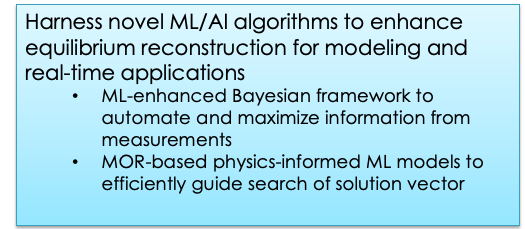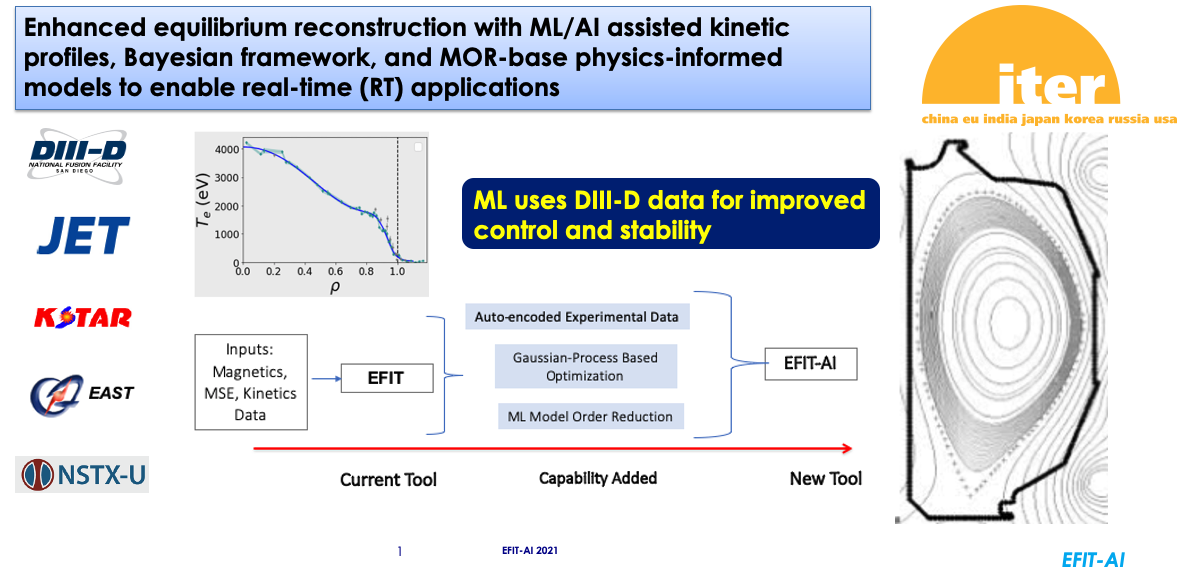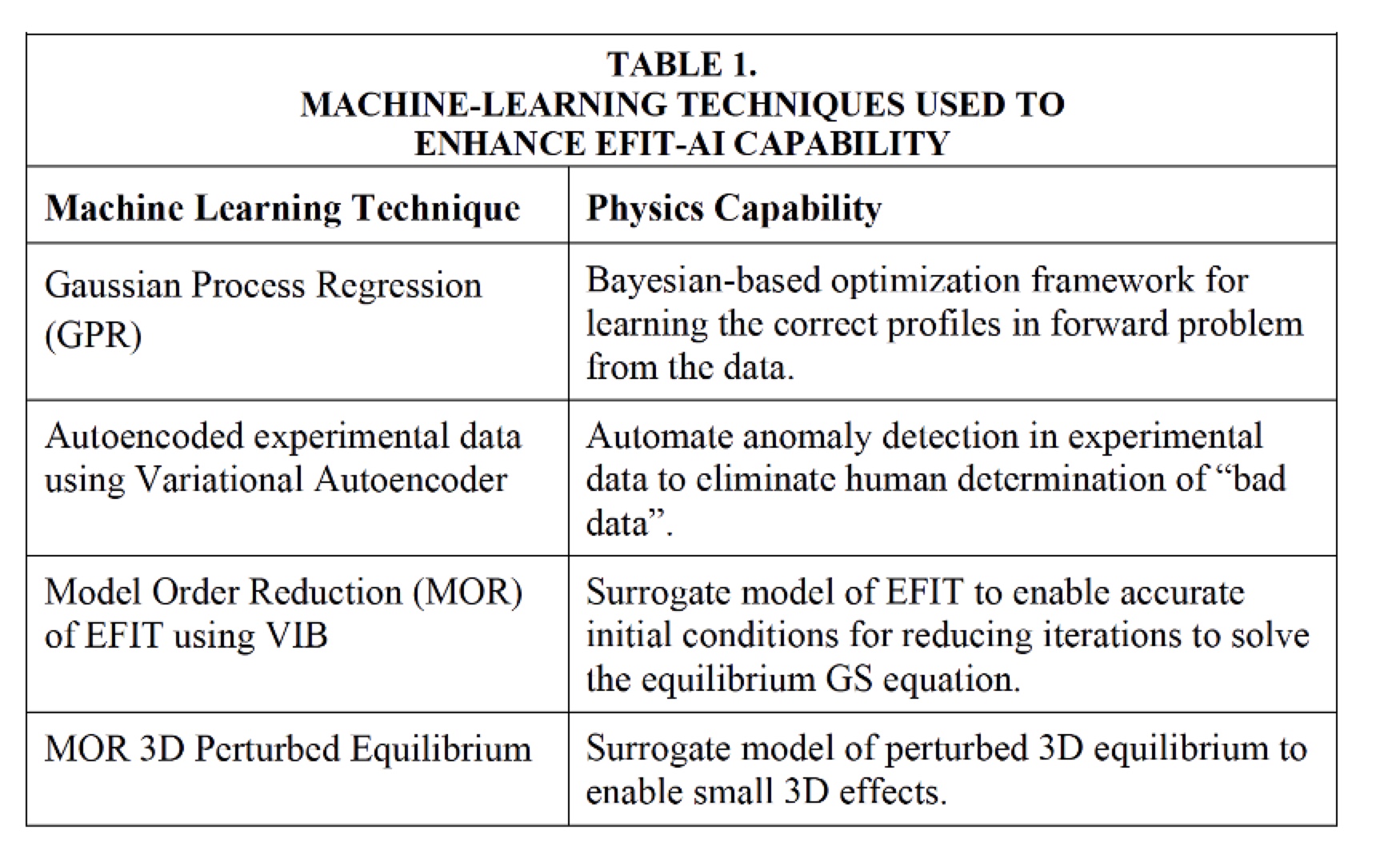Project Goals
The EFIT‐AI project assembles a national team of experts in magnetic fusion, applied‐mathematics, and computer scientists with the objective of creating EFIT‐AI, a modern advanced equilibrium reconstruction code suitable for tokamak experiments and burning plasmas. Machine Learning (ML) and Artificial Intelligence (AI) will be used for more efficient and accurate equilibrium reconstructions, by automating and maximizing the information extracted from measurements and by leveraging physics‐informed ML models constructed from experimental and synthetic solution databases to guide the search for the solution vector. Key elements of the EFIT‐AI framework include:
- Improved optimization and data analysis capabilities using a ML‐enhanced Bayesian framework
- A Model Order Reduction (MOR) version of the two‐dimensional Grad‐Shafranov equation solver
- If time permits, a MOR version of three‐dimensional (3D) perturbed equilibrium reconstruction tool.
The project is a coordination across 5 institutions: General Atomics (GA), TechX, Lawrence Berkeley National Laboratory (LBNL), Argonne National Laboratory (ANL), and PPPL, and is carried out based on experience of the team in tokamak equilibrium reconstruction, fusion plasma physics, and ML/AI algorithms. Extensive database from DIII‐D and other tokamak experimental facilities, as well as ML/AI experience from SciDAC ASCR Institutes, provides foundations for the model development. A high level of integration is planned among the tasks with the use of ML/AI to enhance tokamak equilibrium reconstruction capability.

EFIT-AI
An ASCR and FES project and a SciDAC activity.

AI/ML Techniques to Enhance EFIT-AI

Team Members
- GA: Lao, Liu, McClenaghan, Akcay, Bechtel, Sun, Orozco, Schissel
- TechX: Kruger, Howell, Leddy
- LBNL: Williams, Leinhauser
- ANL: Madireddy, Koo, Prasanna
- PPPL: Pankin
